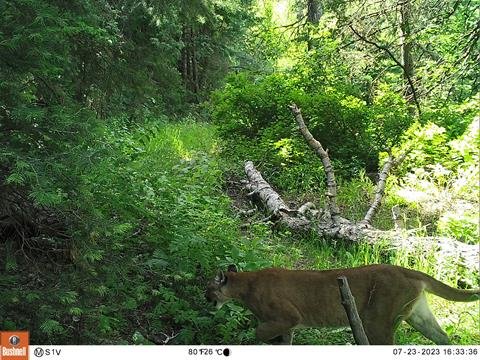Claim your Spot on the 2024 Wildlife Watch Team!
If you've participated in Wasatch Wildlife Watch in previous years, thank you—and if you're new here, welcome! This project has contributed to all kinds of exciting work, and we're excited to see what 2024 brings.
Signups are now open for our upcoming season. Spots on this project are limited and fill up quickly!
The project is changing a bit this year, so please be sure to read our updated Community Scientist Position Description to ensure your availability matches the project requirements. Once you know you can participate, don't hesitate to sign up since this project fills up quickly!
Please complete our volunteer signup form to save your spot and let us know if you prefer a certain site. We suggest completing the form to register as soon as you decide if the project is right for you.
Save the Date: Training & Camera Pickups
This year, our volunteer training will be held at The Crocker Science Center (room 330) at the University of Utah (1390 Presidents' Circle, Salt Lake City, Utah 84112) on Saturday, May 18th, from 1:30pm - 3:30pm. The camera demo section of the training starts at 3:00 pm and is highly recommended.
Can't Get Into the Field This Year? Join our Image Analysis Team
Thanks to community scientists like you, we are nearly up to date with data entry after six years of continuous monitoring! However, we still have all kinds of photos to go through from the previous season! Whether or not you can join us in the field, consider becoming an Image Analysis volunteer to tag and identify wildlife from our cameras. This is the work that turns photos into usable data!
Here are just a couple of photos from recent uploads:
We always need help with image analysis, and it is what allows us to create the invaluable datasets we use for monitoring wildlife across Utah. If you have friends or family in other regions who want to support your work on this project, this is a great way to get involved at a distance, and from your own home!




